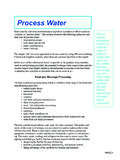Transcription of We Have to Talk - Judy Ringer
1 We have to Talk:A Step-By-Step Checklist forDifficult ConversationsThink of a conversation you ve been putting off. Got it? let s are dozens of books on the topic of difficult, crucial,challenging, important (you get the idea) conversations (I listseveral at the end of this article). Those times when you knowyou should talk to someone, but you don t. Maybe you ve triedand it went badly. Or maybe you fear that talking will onlymake the situation worse. Still, there s a feeling of being stuck,and you d like to free up that stuck energy for more you have here is a brief synopsis of best practicestrategies: a checklist of action items to think about before goinginto the conversation; some useful concepts to practice duringthe conversation; and some tips and suggestions to help yourenergy stay focused and flowing, including possibleconversation ll notice one key theme throughout: you have more powerthan you on Yourself: How To Prepare for theConversationBefore going into the conversation, ask yourself some questions:1.
2 What is your purpose for having the conversation? Whatdo you hope to accomplish? What would be an idealoutcome?76 Park StreetPortsmouth, NH 03801-5031phone & fax: for hidden purposes. You may think you have honorable goals, like educatingan employee or increasing connection with your teen, only to notice that your languageis excessively critical or condescending. You think you want to support, but you endup punishing. Some purposes are more useful than others. Work on yourself so thatyou enter the conversation with a supportive What assumptions are you making about this person s intentions? You may feelintimidated, belittled, ignored, disrespected, or marginalized, but be cautious aboutassuming that this was the speaker's intention.
3 Impact does not necessarily What buttons of yours are being pushed? Are you more emotional than thesituation warrants? Take a look at your backstory, as they say in the movies. Whatpersonal history is being triggered? You may still have the conversation, but you ll gointo it knowing that some of the heightened emotional state has to do with How is your attitude toward the conversation influencing your perception of it? Ifyou think this is going to be horribly difficult, it probably will be. If you truly believethat whatever happens, some good will come of it, that will likely be the case. Try toadjust your attitude for maximum Who is the opponent? What might he be thinking about this situation?
4 Is he awareof the problem? If so, how do you think he perceives it? What are his needs andfears? What solution do you think he would suggest? Begin to reframe the opponentas What are your needs and fears? Are there any common concerns? Could there be?7. How have you contributed to the problem? How has the other person? 4 Steps to a Successful OutcomeThe majority of the work in any conflict conversation is work you do on yourself. Nomatter how well the conversation begins, you ll need to stay in charge of yourself, yourpurpose and your emotional energy. Breathe, center, and continue to notice when youbecome off center and choose to return again. This is where your power lies. By choosingthe calm, centered state, you ll help your opponent/partner to be more centered, is not a step; centering is how you are as you take the steps.
5 (For more onCentering, see the Resource section at the end of the article.)Step #1: InquiryCultivate an attitude of discovery and curiosity. Pretend you don t know anything (youreally don t), and try to learn as much as possible about your opponent/partner and hispoint of view. Pretend you re entertaining a visitor from another planet, and find outhow things look on that planet, how certain events affect the other person, and what thevalues and priorities are your partner really was from another planet, you d be watching his body languageand listening for unspoken energy as well. Do that here. What does he really want?What is he not saying?Let your partner talk until he is finished.
6 Don t interrupt except to you hear, don t take it personally. It s not really about you. Try to learn asmuch as you can in this phase of the conversation. You ll get your turn, but don t #2: AcknowledgmentAcknowledgment means showing that you ve heard and understood. Try to understandthe other person so well you can make his argument for him. Then do it. Explain backto him what you think he's really going for. Guess at his hopes and honor his will not change unless he sees that you see where he stands. Then he might. whatever you can, including your own defensiveness if it comes up. It sfine; it just is. You can decide later how to address it. For example, in an argument witha friend, I said: I notice I m becoming defensive, and I think it s because your voicejust got louder and sounded angry.
7 I just want to talk about this topic. I m not trying topersuade you in either direction. The acknowledgment helped him (and me) to can be difficult if we associate it with agreement. Keep them saying, this sounds really important to you, doesn t mean I m going to go alongwith your #3: AdvocacyWhen you sense your opponent/partner has expressed all his energy on the topic, it syour turn. What can you see from your perspective that he's missed? Help clarify yourposition without minimizing his. For example: From what you ve told me, I can seehow you came to the conclusion that I m not a team player. And I think I am. When Iintroduce problems with a project, I m thinking about its long-term success.
8 I don tmean to be a critic, though perhaps I sound like one. Maybe we can talk about how toaddress these issues so that my intention is clear. Step #4: Problem-SolvingNow you re ready to begin building solutions. Brainstorming and continued inquiry areuseful here. Ask your opponent/partner what he thinks might work. Whatever he says,find something you like and build on it. If the conversation becomes adversarial, goback to inquiry. Asking for the other s point of view usually creates safety andencourages him to engage. If you ve been successful in centering, adjusting yourattitude, and engaging with inquiry and useful purpose, building sustainable solutionswill be , Practice, PracticeThe art of conversation is like any art with continued practice you acquire skill and are some additional hints:Tips and Suggestions: A successful outcome will depend on two things: how you are and what you you are (centered, supportive, curious, problem-solving) will greatlyinfluence what you say.
9 Acknowledge emotional energy yours and your partner's and direct it toward auseful purpose. Know and return to your purpose at difficult moments. Don t take verbal attacks personally. Help your opponent/partner come back tocenter. Don t assume your opponent/partner can see things from your point of view. Practice the conversation with a friend before holding the real one. Mentally practice the conversation. See various possibilities and visualize yourselfhandling them with ease. Envision the outcome you are hoping Do I Begin?In my workshops, a common question is How do I begin the conversation? Here are a fewconversation openers I ve picked up over the years and used many times!
10 I have something I d like to discuss with you that I think will help us worktogether more effectively. I d like to talk about _____ with you, but first I d like to get your point ofview. I need your help with what just happened. Do you have a few minutes to talk? I need your help with something. Can we talk about it (soon)? If the person says, Sure, let me get back to you, follow up with him. I think we have different perceptions about _____. I d like tohear your thinking on this. I d like to talk about _____. I think we may have different ideasabout how to _____. I d like to see if we might reach a better understanding about _____. Ireally want to hear your feelings about this and share my perspective as a possible opening for your conversation here:_____Good luck!






